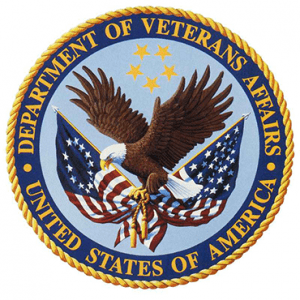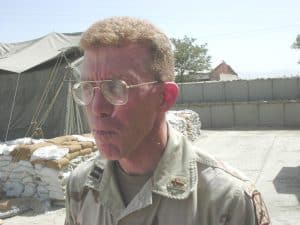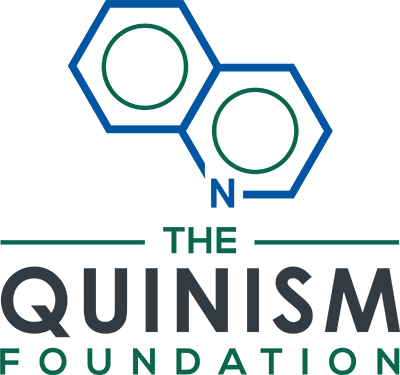Do You Have a VA Mefloquine Rating? Please Share the News!

The Quinism Foundation is now aware of several U.S. veterans who have claimed and have received disability benefits for chronic health conditions that have been acknowledged by the VA as being at least as likely as not caused by service-connected exposure to mefloquine. Several of these cases have been highlighted in recent news stories, including this report by WUSA investigative reporter Andrea McCarren, and this report by KSTP reporter Matt Belanger. We thank all of the veterans who have come forward to share these stories.
We believe these reports are just the tip of the iceberg, and that there are several more veterans who subscribe to this mailing list who have had mefloquine specifically acknowledged in their VA rating decision letters. If you have such a VA mefloquine rating, please share the news with us! We will keep your information confidential, but if you approve, we can also share your story with local reporters working on similar stories in their area. Raising awareness of successful VA mefloquine claims through media reports can encourage other mefloquine veterans to file similar claims, which will lead to the VA devoting resources to provide proper education and screening and care for this condition. Only through the efforts of veterans in raising awareness can this issue succeed, so we thank you in advance for supporting this effort.
Chaplain Fluegel’s Story
The Quinism Foundation is proud this month to feature the story of Chaplain Scott Fluegel. Chaplain Fluegel’s story was recently featured in a news report broadcast on KWQC.
Tell us the story of how you were affected by quinism.
I have only two combat deployments under my belt, one to Kabul Afghanistan, and one to Bagdad, Iraq. I believe that I am affected by quinism. Two to three years ago I realized that I had many of the symptoms, such as tinnitus, vertigo, dizziness, migraines, and memory loss. I now have problems remembering words that I should remember since I have used them so many times in the past. At other times, it is hard for me to concentrate. I also have other symptoms.
How has the foundation made a difference to you?
The Quinism Foundation has legitimized all my symptoms and has affirmed that I am not crazy. I have also learned that many, if not all, of my symptoms, are related.
What would you like to tell others about quinism and the foundation?
The Quinism Foundation has given me the resources, and validated research, that I can use when talking with my own doctors. From this knowledge base I am working towards regaining my brain health. I have also used these resources and research in my counseling practice. When I am counseling combat veterans, who may be suffering from the symptoms of mefloquine poisoning, I refer them to the foundation for support.
Only Six Weeks Left to Donate. Over 25% Raised to Date!
![]() The Quinism Foundation is raising funds to support giving a 50-minute talk on mefloquine poisoning to attendees of the upcoming meeting of the Association of Military Surgeons of the United States (AMSUS). The talk will teach DoD and VA clinicians in attendance how to screen for mefloquine exposure, and how to evaluate patients claiming chronic adverse effects from the drug. Providing critical education of this nature helps ensure that clinicians are able to provide quality care to mefloquine veterans, and earns the foundation considerable attention from DoD and VA leadership.
The Quinism Foundation is raising funds to support giving a 50-minute talk on mefloquine poisoning to attendees of the upcoming meeting of the Association of Military Surgeons of the United States (AMSUS). The talk will teach DoD and VA clinicians in attendance how to screen for mefloquine exposure, and how to evaluate patients claiming chronic adverse effects from the drug. Providing critical education of this nature helps ensure that clinicians are able to provide quality care to mefloquine veterans, and earns the foundation considerable attention from DoD and VA leadership.
AMSUS does not pay any of the foundation’s expenses in traveling or registering for the conference to be able to give this talk. Your support can help ensure DoD and VA clinicians in attendance are able to learn from this important information, and that we are able to continue providing educational sessions such as this into the future.
With six weeks left to go, we are over 1/4 of the way to reaching our fundraising goal. Please support this effort — the clinician that attends this talk may be your own!
The foundation is proud to be listed as a registered charity in the PayPal Giving Fund, on Amazon Smile, and in the Network for Good’s donor-advised fund. You can also read more about the foundation’s charitable activities by reviewing our listing on Guidestar.
Tafenoquine and Mefloquine in the News
According to this news report, the U.S. military is considering using tafenoquine as early as late 2019. The foundation has previously written to the U.S. Department of Defense, recommending that tafenoquine be used only as an antimalarial drug of last resort. The foundation will monitoring developments in this area closely, and will continue to call on policymakers at CDC and military leaders to ensure that important FDA warnings are communicated to military personnel prescribed the drug, to seek medical attention at the onset of abnormal dreams, insomnia, anxiety, and mood changes, if these are severe or last longer than three days. Tafenoquine is an antimalarial drug recently approved by FDA which is more neurotoxic than mefloquine. Tafenoquine was fast-tracked for approval in the U.S. despite the concerns of Australian veterans who allege harm from their involvement in trials of the drug many years ago.
The Quinism Foundation’s executive director, Dr. Nevin, recently testified before the Australian Senate committee investigating these concerns, to share information and to answer questions from committee members. You can watch Dr. Nevin’s complete testimony here.


